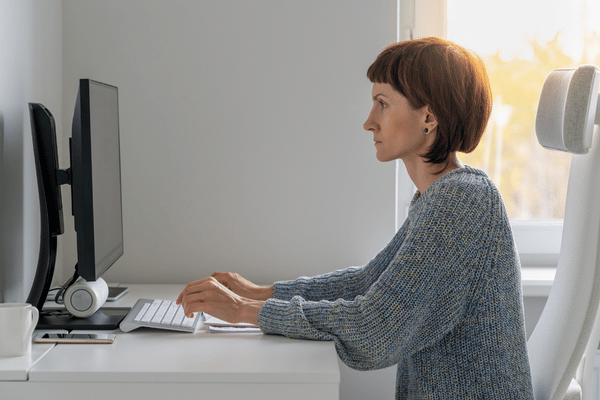We all remember our parents telling us to stand up straight, stop hunching our shoulders, and sit up properly – but why did it matter?
Poor posture can cause a multitude of issues, putting additional strain on our bodies and even sometimes leading to premature joint degeneration. Not only that, but it can even impact your sleep, digestion and bladder control.
Didn’t listen to your parents as a kid? It’s not too late – you can correct your poor posture at any time. Today we’ll run through 3 easy ways to begin the process, but first let’s talk about how to know if you have poor posture.
How To Know If You Have Poor Posture
This might sound straightforward, but in the early stages of having improper posture, the results can be subtle.
Mild to moderate symptoms from poor posture may include:
- Muscle fatigue
- Frequent headaches
- Neck strain
Moderate to severe symptoms from poor posture may include:
- Rounded shoulders
- A permanently hunched back
- A neck ‘hump’
- A pot belly
If you’re unsure whether you slouch in the first place, try this quick at-home assessment. Place the back of your head against a wall. Move your feet 6 inches out from the baseboard, keeping your backside on the wall. Your lower back and your neck should be about 2 inches from it.
How To Correct Your Posture
-
Watch Out For Tech Neck
It’s no secret that we’re on our smartphones all day – in fact, the average American checks their phone 63 times each day. But looking down at your phone that often can strain your neck, holding it in an awkward position. This is one of the leading causes of poor posture in recent years. To correct, hold your phone at eye level, moving the phone as opposed to moving your eyes.
2. Sit Upright When Driving
Picture this: a long drive, a cool breeze and your favorite music – you might be tempted to slightly recline your seat. But holding your body in that position can add stress to your spine. To correct, simply keep that seat upright and relax your knee, no higher than your hip.
3. Seek A Physical Therapist
Ultimately, one of the best routes you can take when noticing your poor posture is to get the help of a professional. A physical therapist will help develop a customized exercise program for you to target your concerns, and meet your goals.
Improving your posture is a lifelong process – it involves changing your habits, your go-to stance and in some cases, even changing your walk. Working with an experienced professional enables you to kickstart this process on the right foot – get in touch with our team today.


